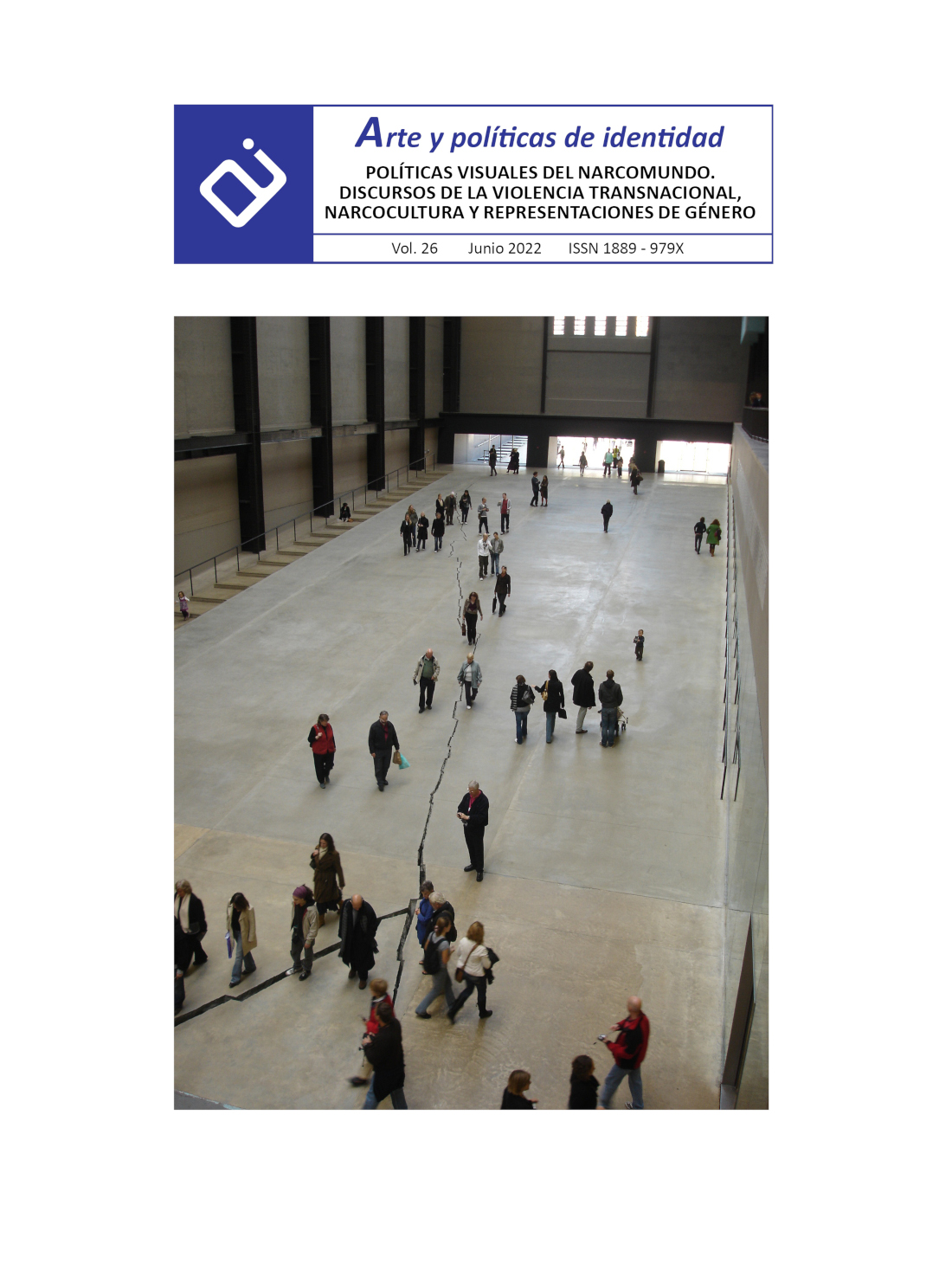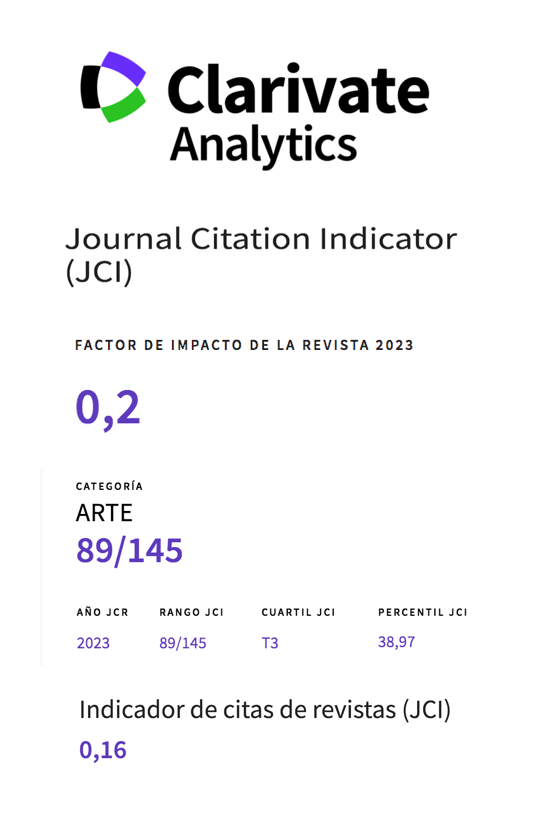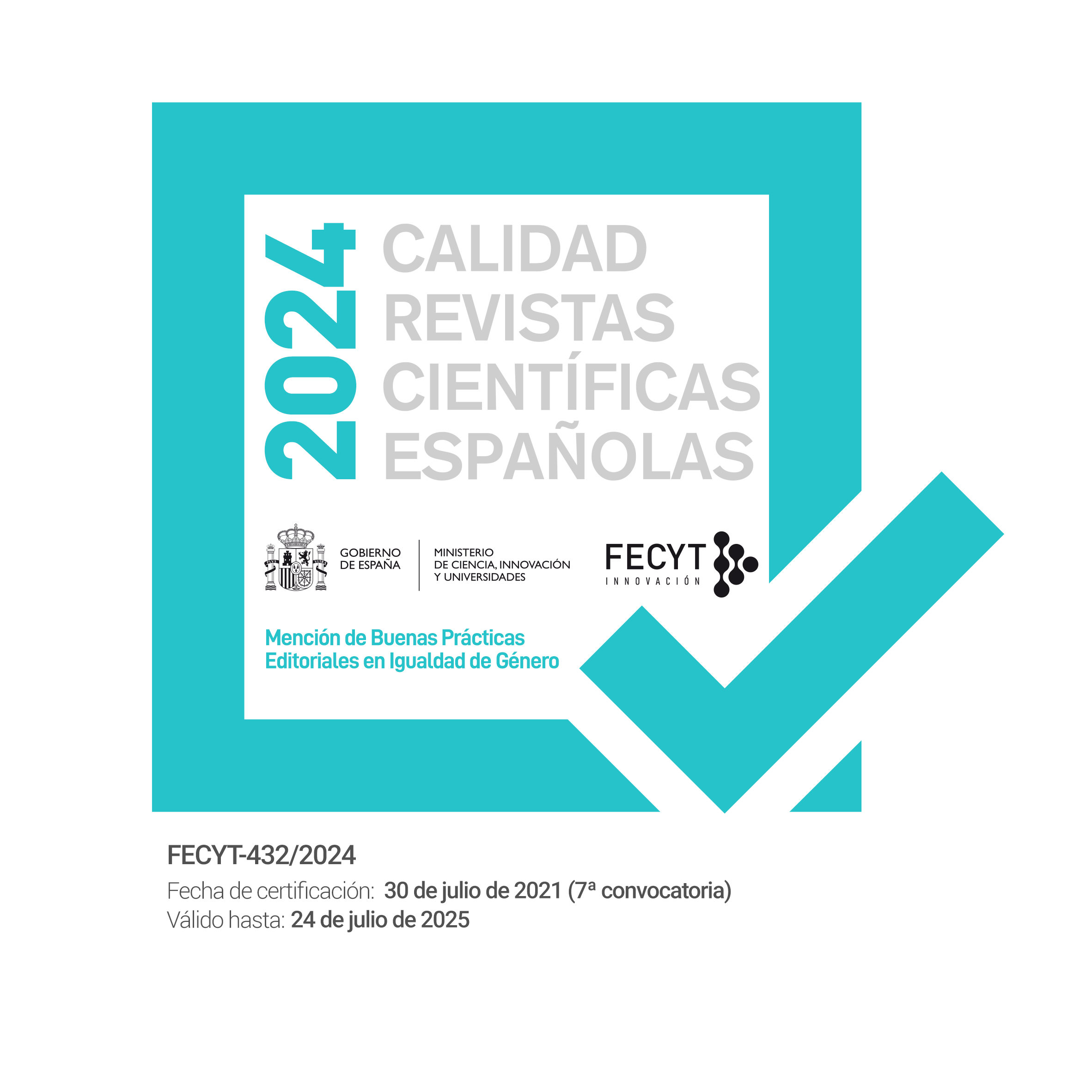Maternal textiles: A reflexive revolution of Latin American women in the face of social patriarchy
Abstract
In this article we want to make known the creative and organizational process of activist art of Latin American women in whose experimental projects textile materials and techniques would be protagonists as a means of showing society their insubordination to the power of patriarchy and social injustice. These women who silently embroider in the streets the names of their murdered companions, who collect the garments of those disappeared migrants who plot fictions from the creative in search of their interiority, would focus our attention through these maternal textiles as emotional symbols impregnated by the energy of the new contemporary martyrs that are made visible through their artistic actions and the community of volunteers committed to these projects. They, like the great goddesses, would carry the cloak, the veil and in their hands the thread, the spindle and the distaff, thus presiding over the birth of forms, the passing of time and the fertile power of the goddess as a symbol of creation and of social transformation.
Downloads
-
Abstract459
-
pdf (Español (España))656
References
Bachelard, G. (2019). La poética de la ensoñación, Ciudad de México: Fondo de Cultura Económica.
Balasso, E. (2018). Tapiz Rubedo. Sostenemos sus nombres, Efímera, Vol. 9 (10), pp. 1-19.
Bryan-Wilson, J. (2021). El Living Room, en M. A. López (ed.), Veroír el fracaso iluminado [cat. expo] (pp. 45-69). Madrid: CA2M Centro de Arte 2 de Mayo.
Chevalier, J. Gheerbrant, A. (1999). Diccionario de los símbolos, Barcelona: Heder.
De Gracia, S. (2018). Tejer, coser, bordar: Arte de Acción y la reutilización de lo artesanal, Efímera, Vol. 9 (10), pp. 1-18.
Durand, G. (1981). Las estructuras antropológicas de lo imaginario. Introducción a la arqueología general, Madrid: Taurus.
Fabré Nadal, H. y León, A. K. (10 de diciembre de 2017). «Feminicidios: la imagen del horror» en La jornada semanal. Nº 1188. Recuperado de http://semanal.jornada.com.mx/2017/12/10/feminicidios-la-imagen-del-horror-1385.html.
Hillman, J. (2010). Anima: Guía hacia el alma, en Christine Downing (ed.), Espejos del yo, Imágenes arquetípicas que dan forma a nuestras vidas. Barcelona: Kairós, pp. 58-60.
Irigaray L. (2016). En el principio ere ella. Un retorno al origen griego arcaico de nuestra cultura, Barcelona: La llave.
Jung, C. G. (1990). Formaciones de lo inconsciente, Col. Biblioteca de Psicología Profunda nº16, Barcelona: Paidós.
Jung, C. G. (1994). Arquetipos e inconsciente colectivo, Col. Biblioteca de Psicología Profunda nº14, Barcelona: Paidós.
Jones, A. (2006). El cuerpo del artista, Londres: Phaidon.
López, M. A. (2021). Veroír el fracaso iluminado [cat. Expo], Madrid: CA2M Centro de Arte 2 de Mayo.
Macchiavello, C. M. (2017). Resistir/existir: el ensamblaje como estrategia de resistencia en las palabrarmas de Cecilia Vicuña, MERIDIONAL Revista Chilena de Estudios Latinoamericanos, Nº 9, pp. 55-89.
Macchiavello, C. M. (2021). ¡A liberar! En torno a las palabrarmas de Cecilia Vicuña en M. A. López (ed.), Veroír el fracaso iluminado [cat. expo] (pp. 71-91). Madrid: CA2M Centro de Arte 2 de Mayo.
Mayayo, P. (2002). Louise Bourgeois, Hondarribia: Nerea.
Pazmiño Vernaza, P. (2018) «Sentada con juicio». Sobre las prácticas artísticas feministas y el tejido-bordado subversivo en Ecuador, Efímera, Vol. 9 (10), pp. 1-31.
Pérez de Carrera, E. (2004). 49 Respuestas a la aventura del pensamiento, tomo I. Madrid: Fundación Argos.
Reckitt, H. y Phelan, P. (2005). Arte y feminismo. Barcelona: Phaidon
Ruiz Garrido, B. (2018). Prácticas textiles para subvertir los espacios públicos. Del sufragismo al contra-feminicidio, BIBLID, pp. 143-168.
Velasco, A. (2021). Historia de la moda en España. De la mantilla al bikini, Madrid: Catarata.
Whitmont, E. C. (2010). La persona: la máscara que usamos en el juego de vivir, en Christine Downing (ed.), Espejos del yo, Imágenes arquetípicas que dan forma a nuestras vidas. Barcelona: Kairós, pp. 39-44.
Zubiarre, M. (2021). Basura. Usos culturales de los desechos, Madrid: Catedra.
Works published in this journal are subject to the following terms:
- The Service of Publications from the University of Murcia (publishing house) keeps the published works’ copyrights, and favors and allows the reuse of these works under the license indicated in point 2.
- Works are published in the journal’s online edition under the license Creative Commons Reconocimiento-NoComercial-SinObraDerivada 3.0 España(texto legal). They can be copied, used, disseminated, transmitted and publicly exhibited, as long as: i) the author and original source of publication are cited (journal, publishing house and work’s URL); ii) they are not used for commercial purposes; iii) the existence and specifications of this license are mentioned.
3. Conditions for auto-file. It is allowed and encouraged that authors share electronically their pre-print version (the pre-reviewed version) and /or post-print version (the reviewed and accepted version) of their Works before the publication, since it promotes its circulation and dissemination. RoMEO color: green.










